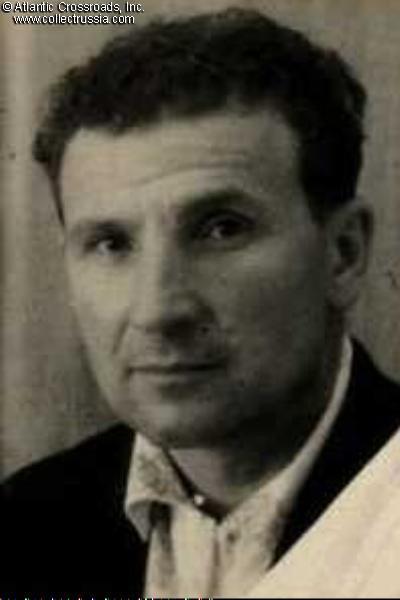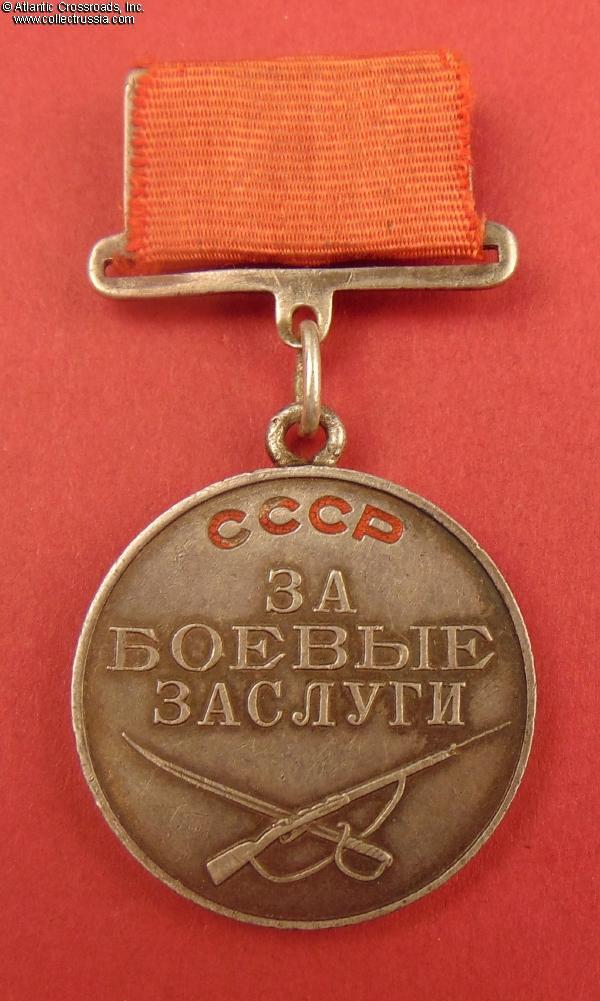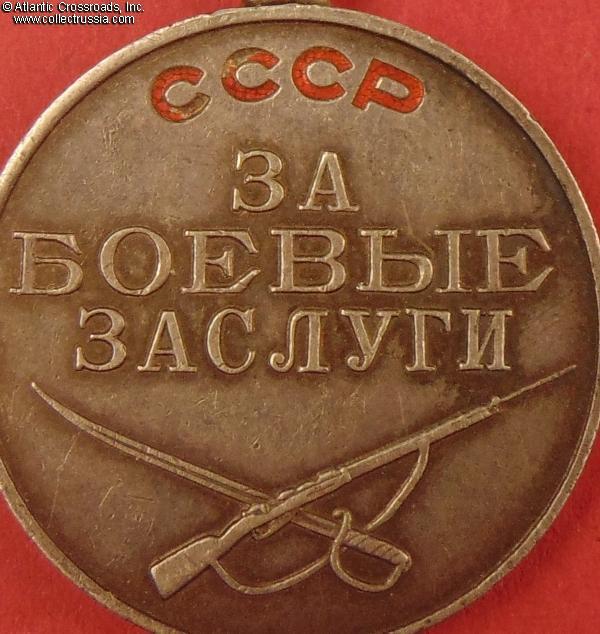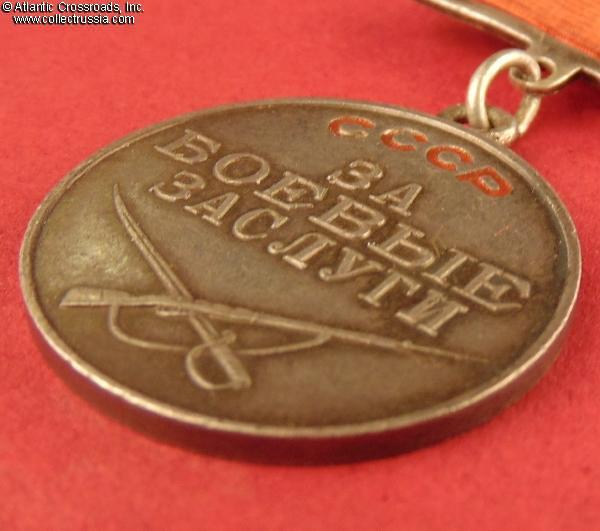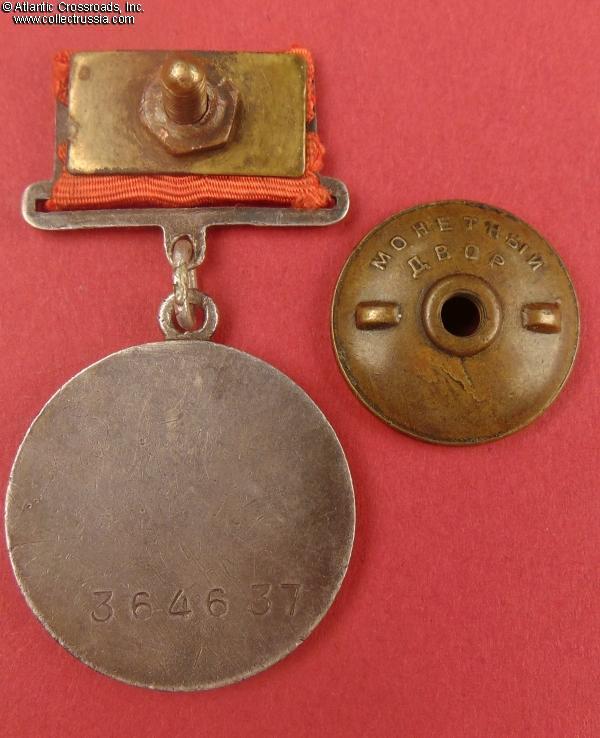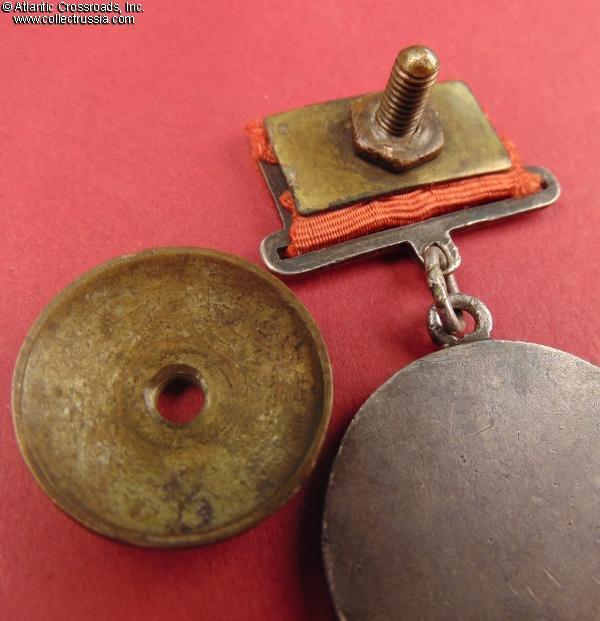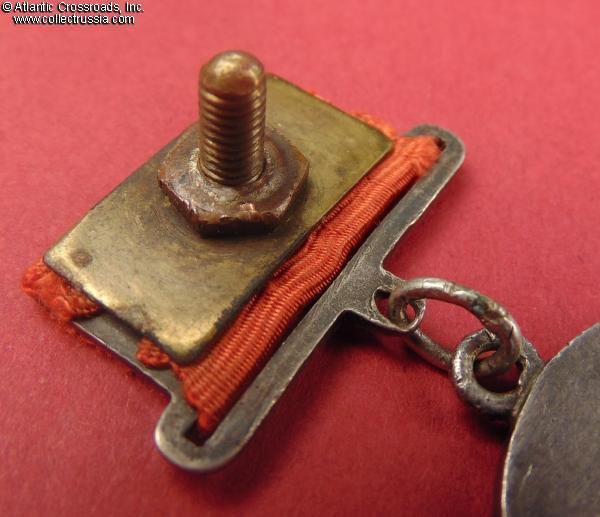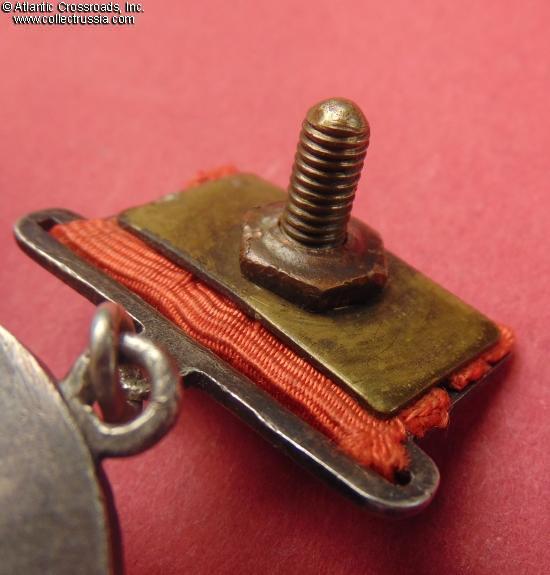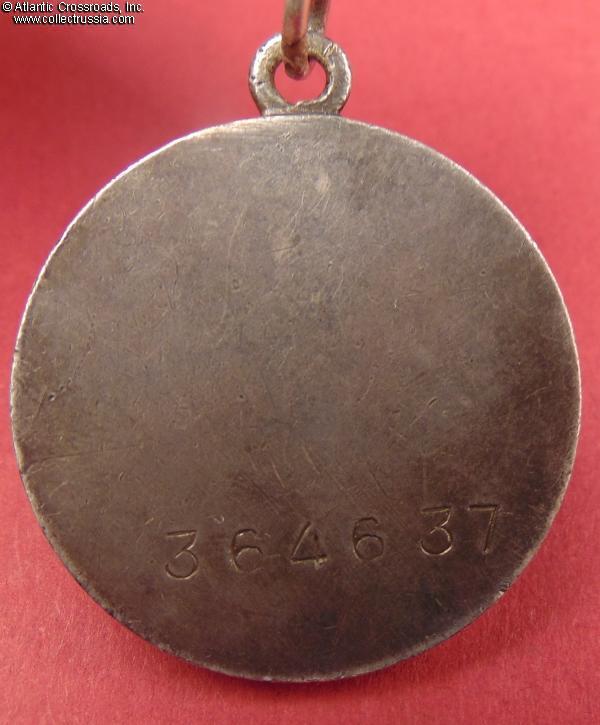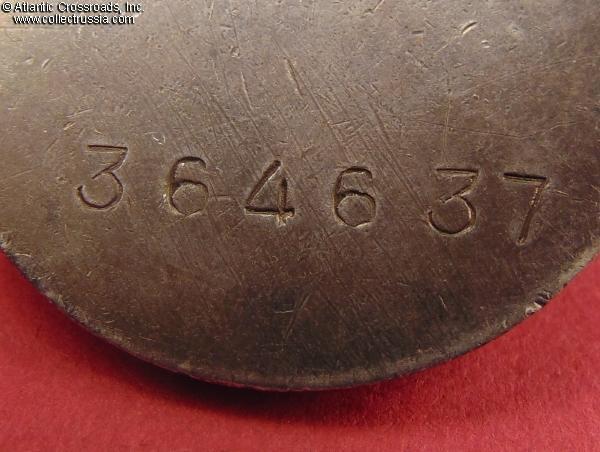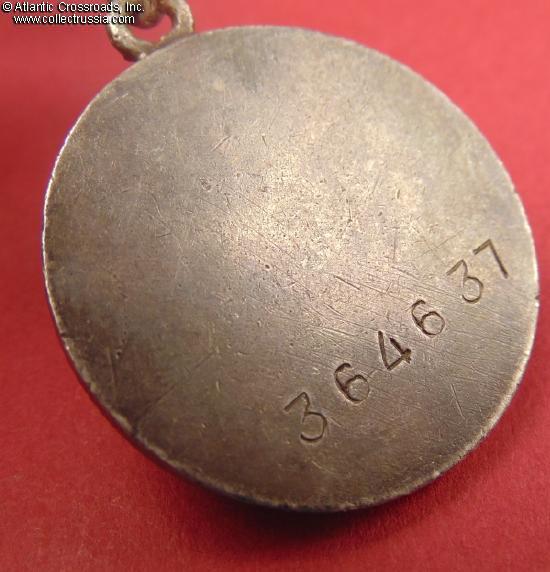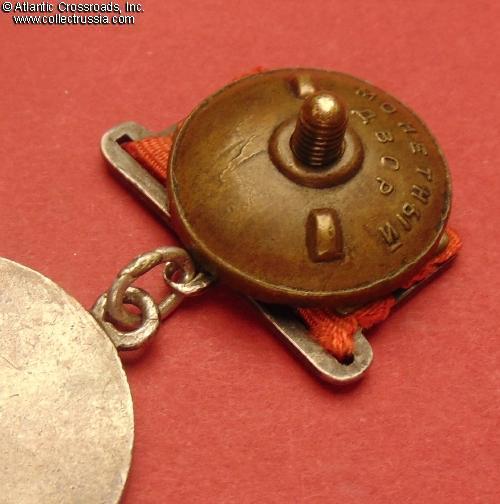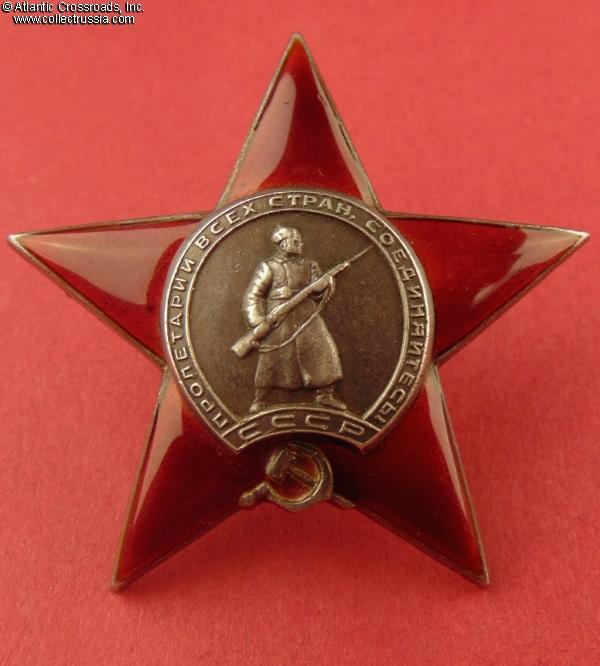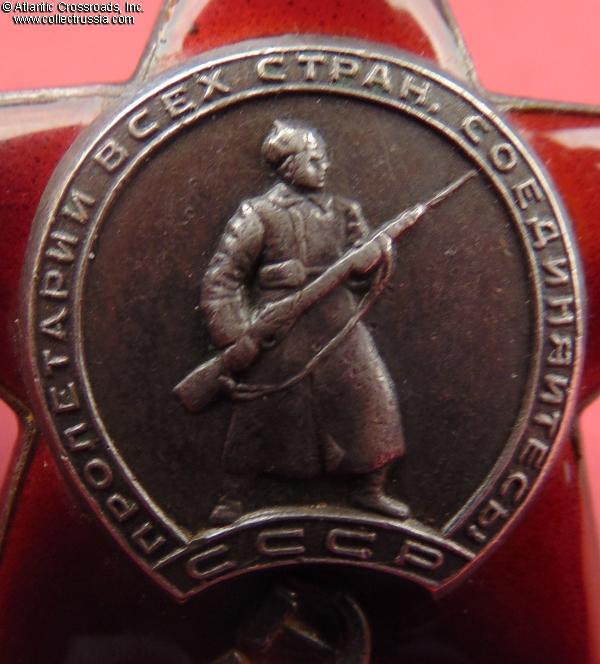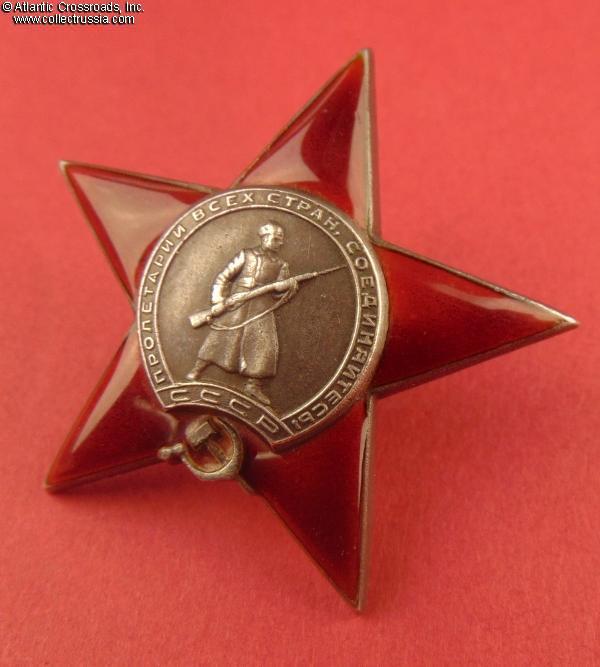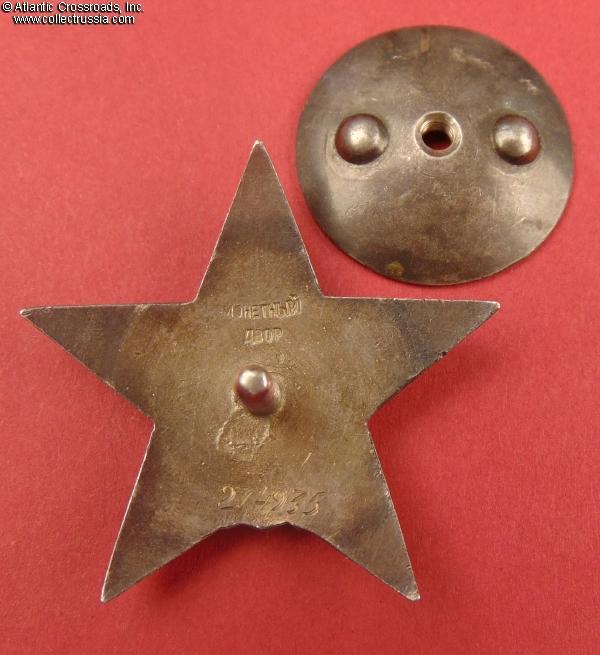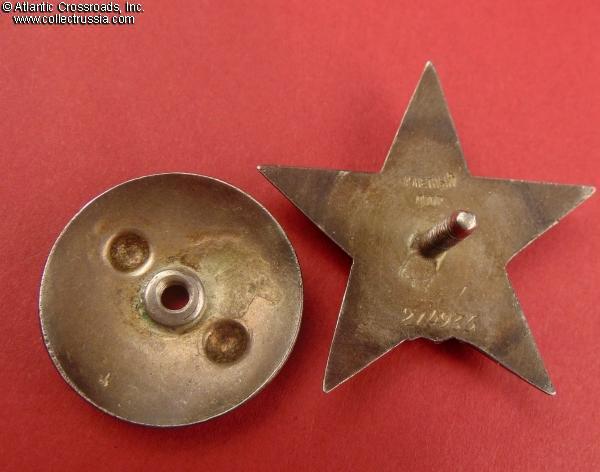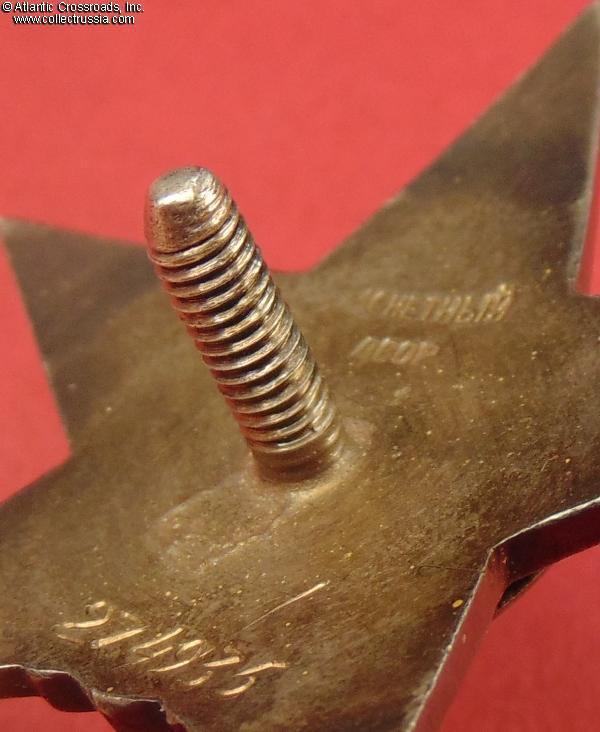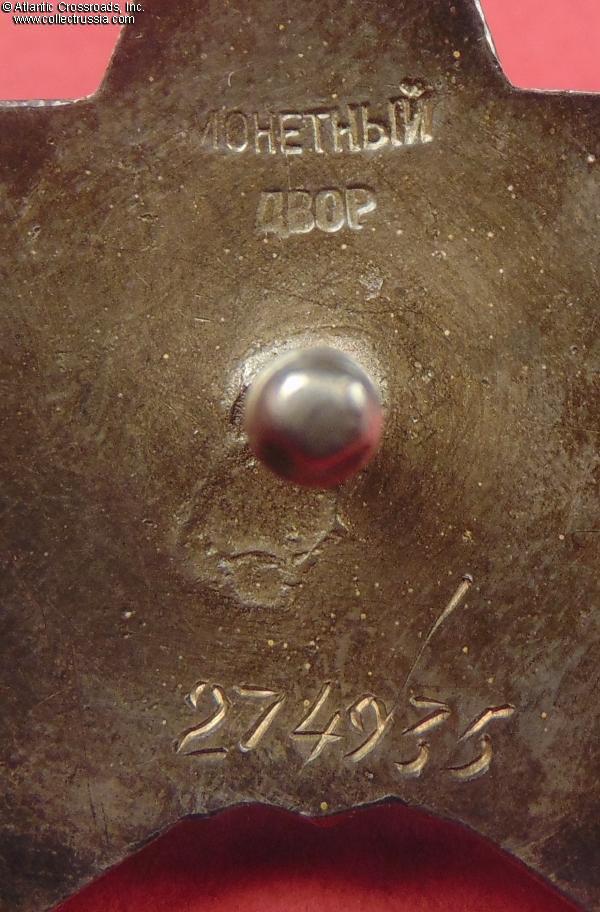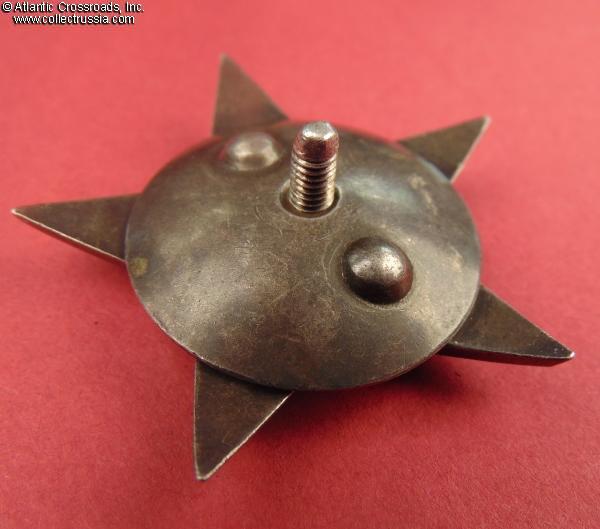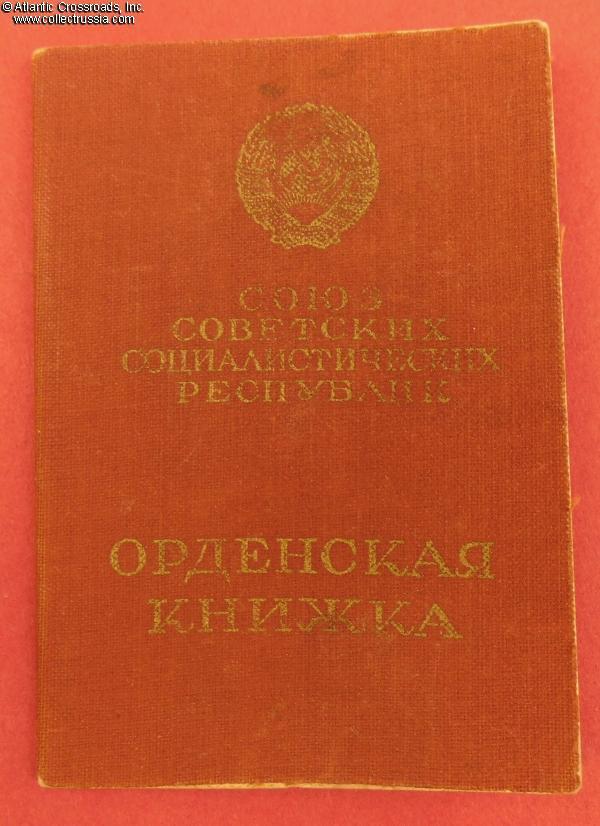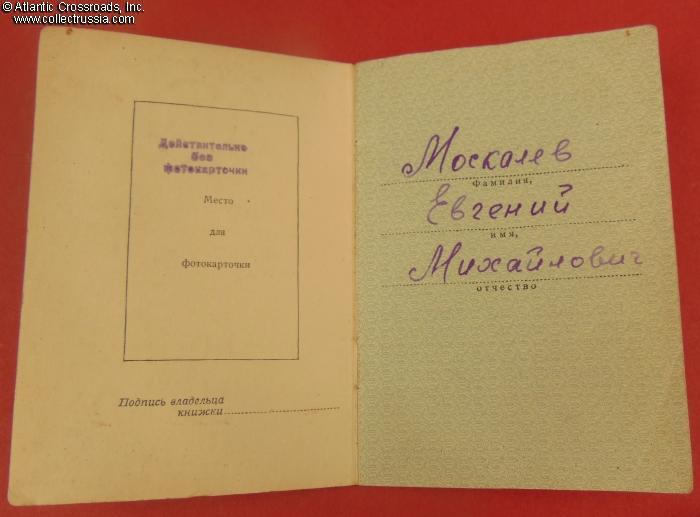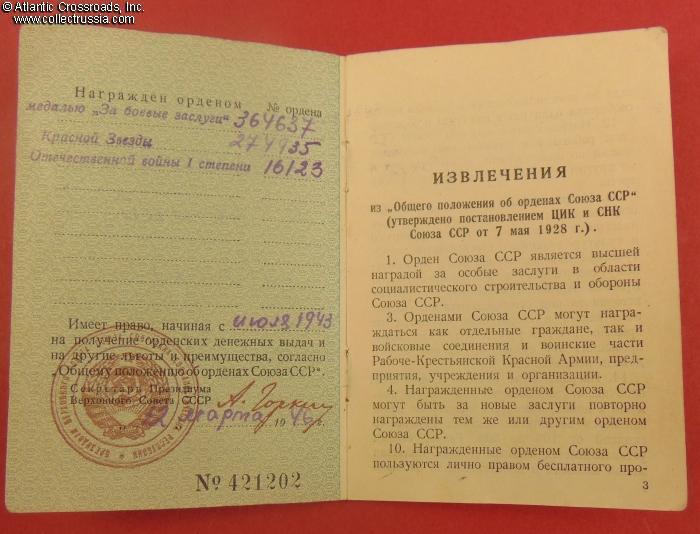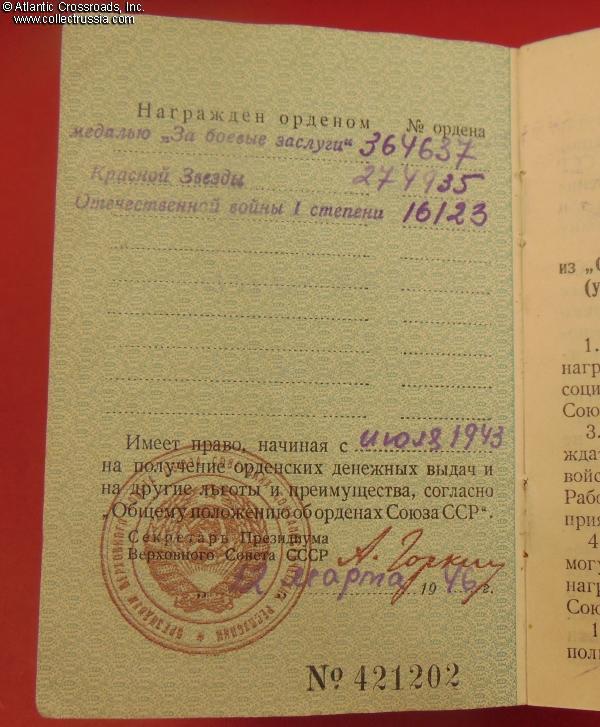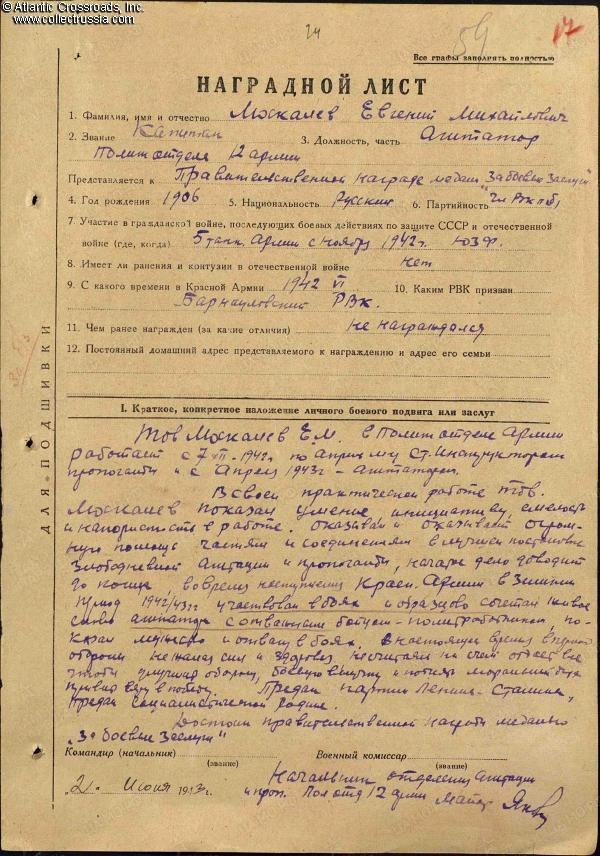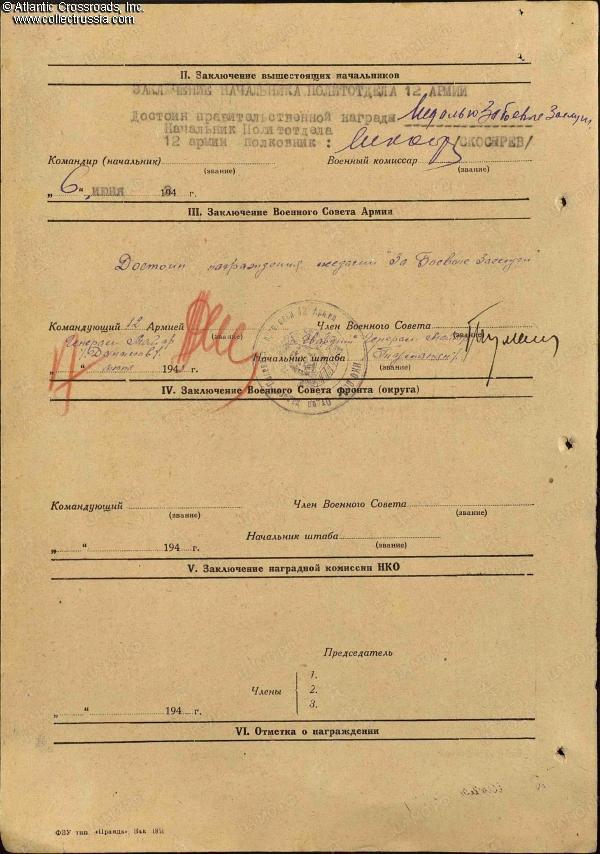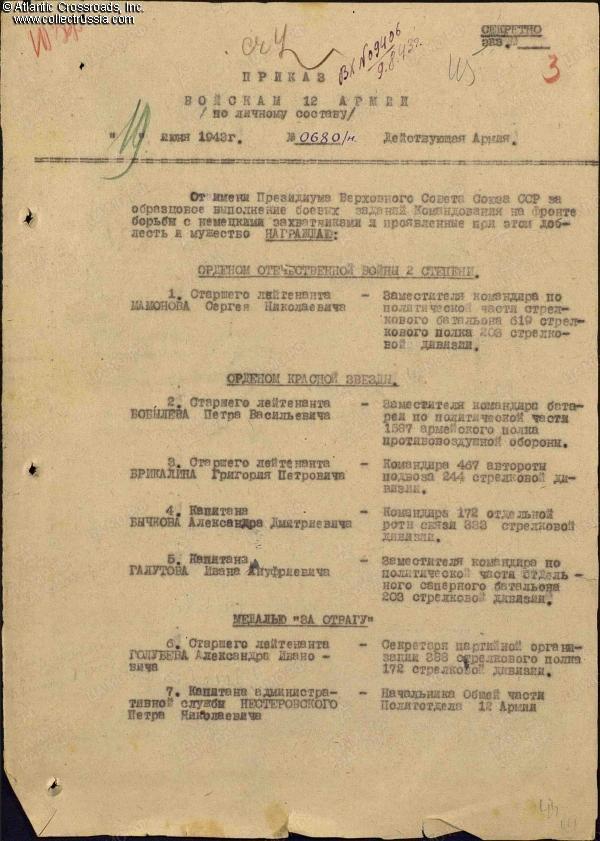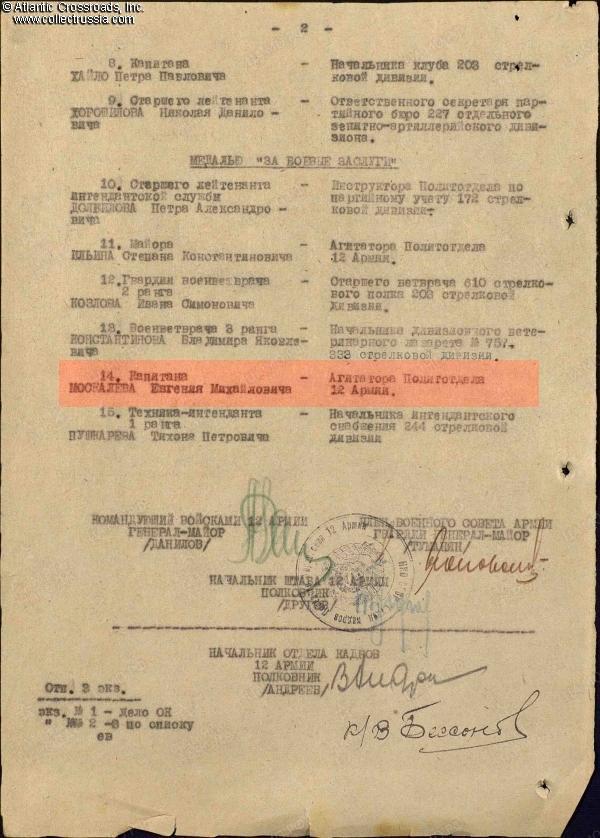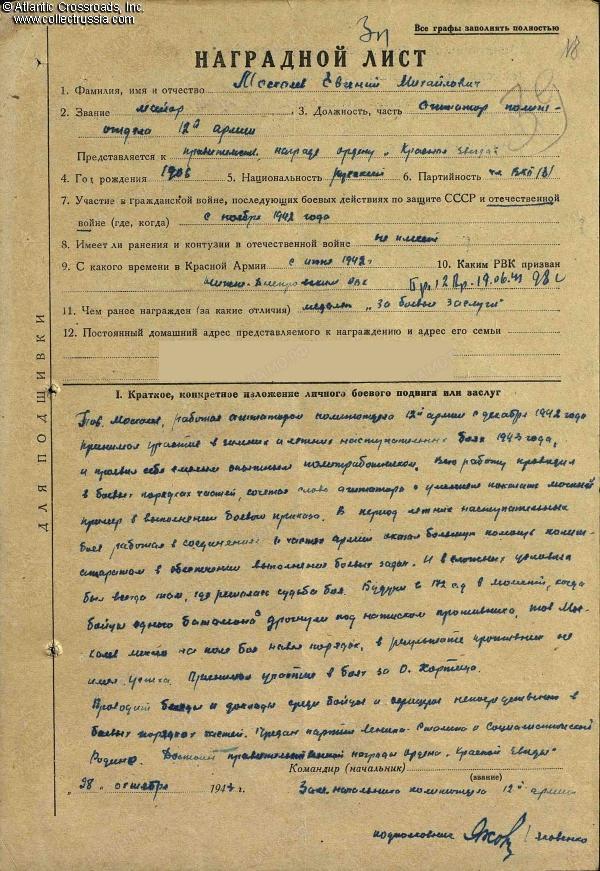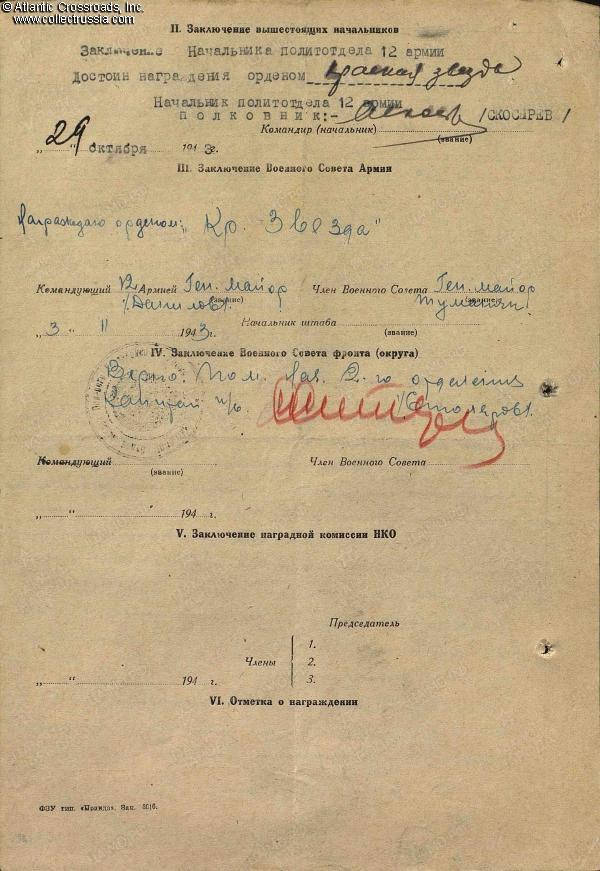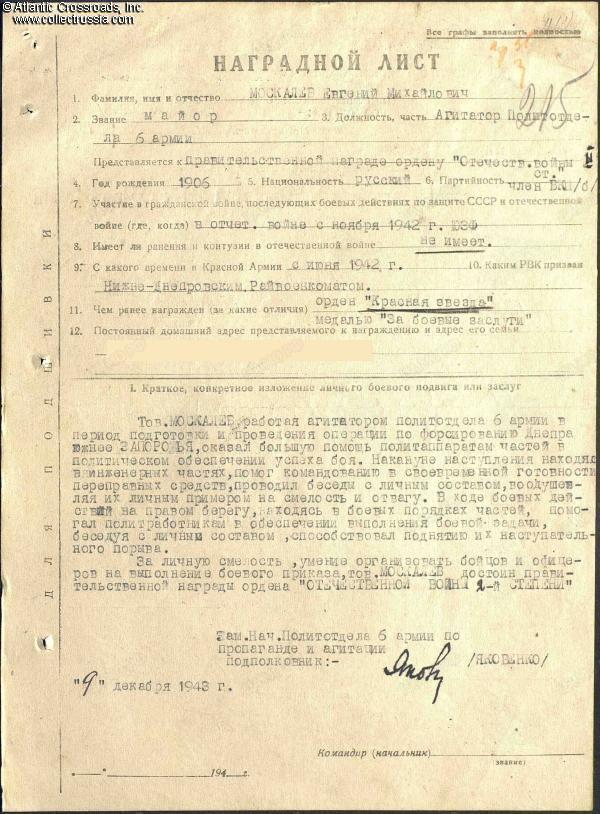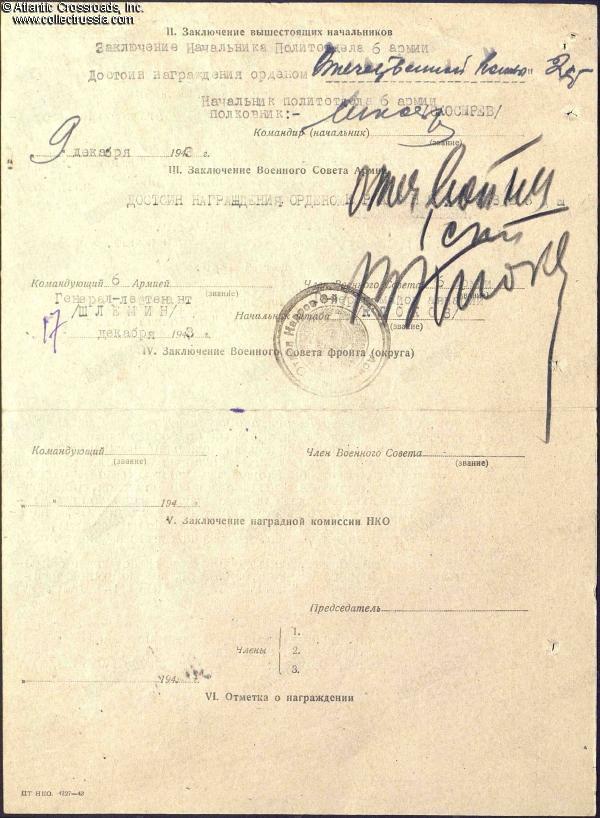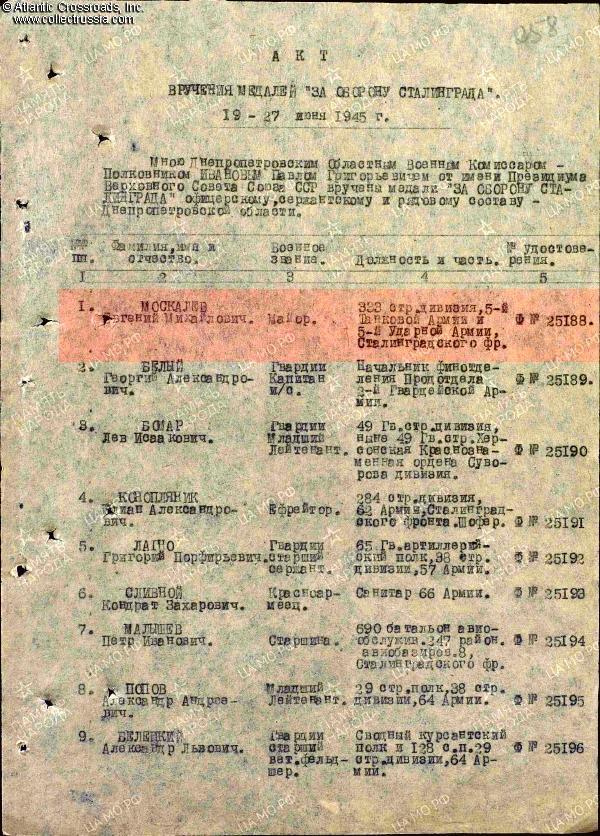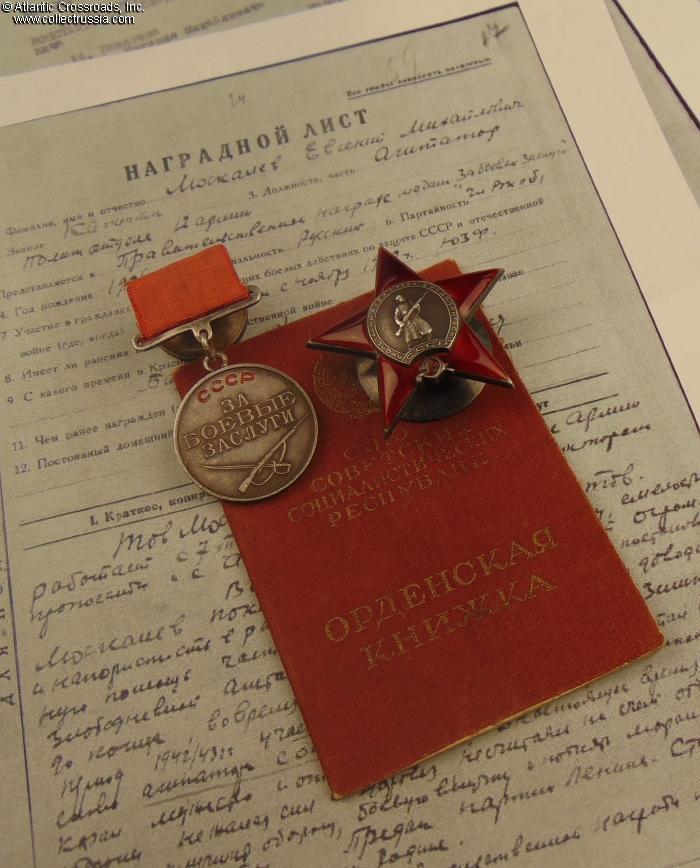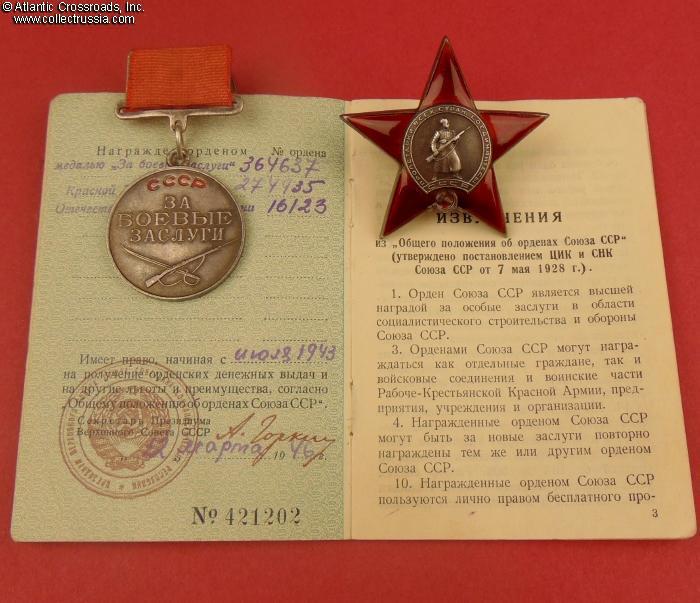
Documented Group of Two Decorations to Captain Yevgeniy Moskalev (Евгений Михайлович Москалев).
Medal for Combat Service, Type 1 Variation 3, "Thin" sub-variation, #364637.
The medallion is in silver and lacquer; measures approx. 2.3 mm thick, 32.2 mm wide. The suspension is in silver with brass screw post; measures 25.0 mm wide at the top, 17.1 - 17.4 mm tall not including the ribbon and lip for the connecting link.
In very fine to excellent condition, far better than the average for the early type. There are just a couple of tiny chips to the fragile red lacquer in the letters, while no less than 75% of it remains intact - an uncommon case for any wartime
Medal for Combat Service, Type 1 Variation 3, "Thin" sub-variation, #364637.
The medallion is in silver and lacquer; measures approx. 2.3 mm thick, 32.2 mm wide. The suspension is in silver with brass screw post; measures 25.0 mm wide at the top, 17.1 - 17.4 mm tall not including the ribbon and lip for the connecting link.
In very fine to excellent condition, far better than the average for the early type. There are just a couple of tiny chips to the fragile red lacquer in the letters, while no less than 75% of it remains intact - an uncommon case for any wartime Combat Service Medal, let alone Type 1. The obverse of the medallion is practically pristine otherwise; the details of the lettering and artwork are perfect and extremely crisp. The reverse has a few barely noticeable dings and scuffs at the edge but no significant wear or damage. Very attractive even patina to silver on both sides.
The medal comes with the original suspension device, complete with the brass rectangular back plate, hexagon nut and mint marked screw plate. The screw post is of full length, nearly 10.5 mm long measured from the back plate. The perfectly preserved, clean ribbon is old and probably original to the medal. The connecting link appears to be original and its ends are still joined with solder.
Order of the Red Star, Type 6, Variation 1, #274935.
Silver, enamel; measures 46.6 mm tall, 48.7 mm wide; weighs 27.7 g without screw plate. Extremely beautiful early issue. The enamel quality is on par with the earlier types such as "Mondvor" and much better than what is usually observed in higher serial number ranges. Features pointy arms and straight edges of the star.
In outstanding, excellent condition - very uncommon for an early Type 6 award. The enamel is practically pristine, retaining a magnificent luster and having only a couple of minuscule contact marks that are barely noticeable to the naked eye. The center medallion is essentially pristine, free of wear visible without magnification; its details are perfect and exceptionally crisp. There is a beautiful even patina to silver on both sides. The screw post is full length, approx. 13.5 mm, and includes an original silver screw plate. To summarize, this piece is nearly impossible to upgrade condition-wise.
Order Booklet, #421202, issued on 12 March 1946. Beside the two decorations included in the group, it also shows an early Order of the Patriotic War, 1st cl., #16123 which is now missing. The starting date for the special privileges is July 1943, which corresponds with the June 1943 award date of the first decoration - in this case, the Medal for Combat Service.
The document is in excellent condition. The cover shows almost no wear. Both the interior and exterior are very clean. The binding is tight; the internal pages are perfectly crisp.
Yevgeniy Moskalev was born in 1906 in a village of the Bryansk Region of Russia. He joined the military as a political officer in June 1942 and by June of the next year had already been promoted to Captain - probably owing to his pre-war career as a Communist Party apparatchik (according to one archival note however, he might have been on active duty in either the military or NKVD since as early as 1928). In November 1942, just before the Soviet counteroffensive at Stalingrad, he was appointed as a propaganda officer to the Political Department of the 5th Tank Army. This army of the Southwestern Front would soon play a pivotal role in the Battle of Stalingrad by smashing through the northern flank of the German defenses and capturing the vital bridge over the Don River in the town of Kalach. It thus cut the supply artery of the Paulus' VI Army in Stalingrad which eventually led to the German defeat at Stalingrad.
According to the subsequent award commendation submitted in June 1943 (by that time, Moskalev had been reappointed to the Propaganda Department of the 12th Army), he took part in many combat engagements during the Red Army winter offensives of 1942-43, showing personal bravery while leading and inspiring his troops. Later, during the quiet period at the front, he also put a lot of energy in the political indoctrination of his subordinates. On 19 June 1943, Moskalev was awarded with the Medal for Combat Service, his first decoration of the war.
In October 1943, Moskalev, then already a Major, was recommended for the Order of the Red Star. According to the commendation by the Deputy Chief Political Department Commander of the 12th Army, Moskalev was always at the most critical sectors of the frontline whenever the need arose. On one occasion, when the 172nd Rifle Division of the 12th Army buckled under the enemy pressure, he rushed into action, rallied the troops, and reversed the situation, repelling the enemy. He also showed himself to the best advantage in the battle for Khortitsa (aka Khortytsia), a large island on the Dnieper River famous for having been the main stronghold of the Ukrainian Zaporozhian Cossacks until they were expelled during the Catherine the Great's reign. The order was bestowed upon Moskalev on 3 November 1943.
Moskalev's final decoration of the war was the Order of the Patriotic War earned in the forced crossing of the Dnieper near Zaporizhzhia. During the operation, he served as a senior political officer with the 6th Army and was responsible for inspiring the troops, often leading them from the front and showing personal examples of bravery on the battlefield. Interestingly, although he was initially recommended for the 2nd class of the order, he was ultimately awarded with the 1st class on 17 December 1943 by the decision of the Commander of the 6th Army Lt. General Shlemin.
It is not clear what happened with Moskalev later on. Judging from the fact that he was released from active service in the military in September 1943, we can guess that he was probably severely injured at that time and subsequently deemed unfit for duty. He clearly did survive the war judging by his 1946 issue order booklet and also by the fact that he was awarded with a Medal for Victory over Germany.
Research Materials: photocopy of the award commendations for all three WW2 decorations; photocopy of the brief service information and
photo of Moskalev from the Russian archival website pamyat-naroda.ru.
$875.00 Add to cart

